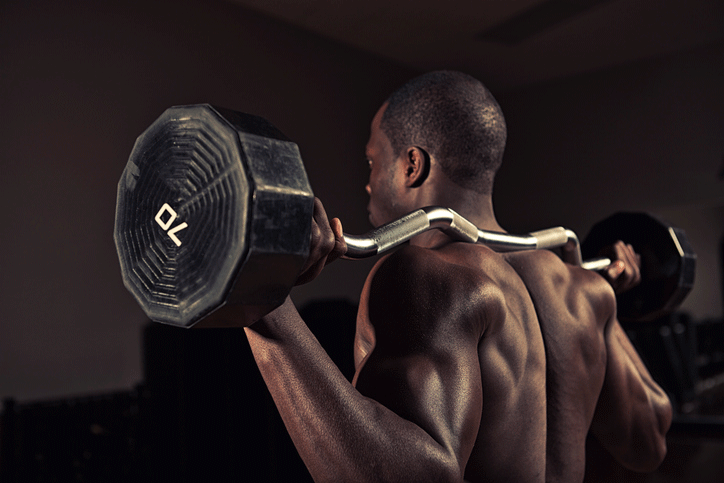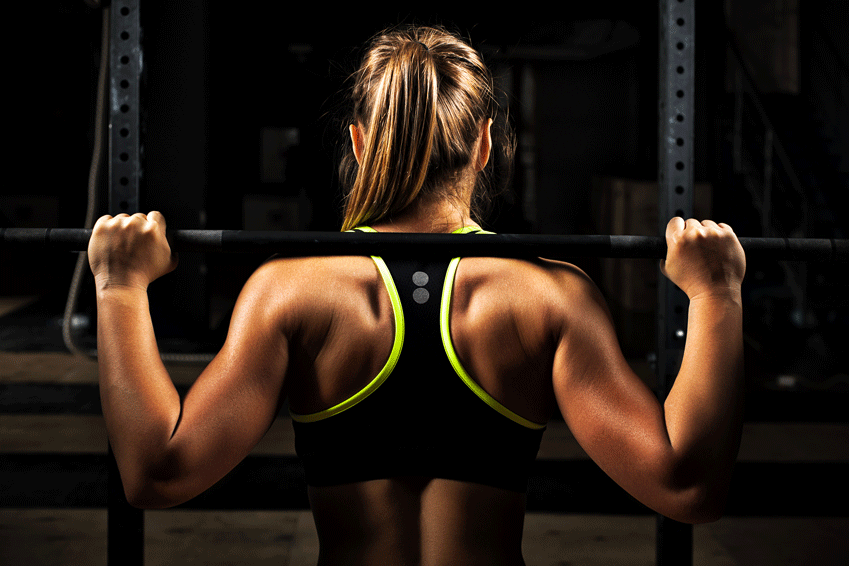Do you experience back pain after lifting weights? The first step to preventing back pain is understanding what causes it.
Back pain and back injuries take a significant toll on Americans. Statistics from the National Institutes of Health indicate, eight out of ten people will experience back pain at some time in their lives. A study published in JAMA put the medical cost of neck and lower back pain reached almost $88 billion. Contributing to this problem is weightlifting at the gym (or elsewhere).
When done correctly, weightlifting should not cause back pain. In fact, it can strengthen your muscles to protect against pain-causing injuries. So, if you experience back pain after lifting weights, it could be attributed to one of the following…
Your Core Is Weak
If you’re a newcomer to the weightlifting scene, perhaps your back pain is the result of a weak core. The core consists of the abdominal, shoulder and back muscles, and plays a role in nearly every primary type of weightlifting exercise. Whether you are performing chest presses, squats, shoulder presses, etc., you need a stable core to stabilize your body; otherwise, you will place stress on your spine and experience back pain as a result.
You can strengthen your core by performing exercises such as planks, leg lifts, scissor kicks and crunches.

You Aren’t Stretching
Don’t underestimate the importance of stretching before lifting weights. Stretching helps to loosen your muscles and reduce the risk of injury. If you don’t stretch beforehand, lifting weights could overextend your muscles, including those in your back and shoulders, to the point of damage. A simple five- to 10-minute stretching routine can protect you from painful back injury.

You Aren’t Stabilizing Your Shoulders
Make sure you stabilize your shoulders when lifting weights. If there’s too much movement in your shoulders, the additional force will go toward your back, which may cause pain. So, keep your shoulders firm and stable throughout your weightlifting reps to prevent back pain.
You’re Pushing Yourself Too Hard
Another common reason people experience back pain after lifting weights is that they try to do too much. It’s no secret that raising heavier weights translates into more significant muscle gains. However, that doesn’t necessarily mean you should attempt a new personal record on every lift.
On the contrary, pushing yourself too hard can stress your muscles and spinal column, thereby resulting in back pain. So, if you’re struggling with weight exercise-related back pain, try lifting lighter loads to see if the problem subsides. Using less weight and more reps is often the answer.
You’re Bending Back
Finally, leaning or bending back when lifting weights increases the risk of back pain. The golden rule of weightlifting is to keep your spine straight and upright. If there’s too much curvature when lifting, your spine will be stressed, and you’ll probably experience back pain as a result.
Recovering From Weightlifting-Related Back Pain
If you experience back pain after lifting weights, the best thing you can do is rest. Attempting to hit the gym the following day, or even in several days, may worsen your injury and extend your recovery time. Be patient and avoid all forms of resistance training, including weightlifting. Taking an over-the-counter nonsteroidal anti-inflammatory drug (NSAID) may offer some temporary relief. In the meantime, though, be patient and allow your body to heal.
Back pain is a leading cause of physical disability worldwide, preventing millions of people from working (and playing). The good news is that you can avoid back pain associated with weightlifting. Do it right and stay in shape. Enjoy!





